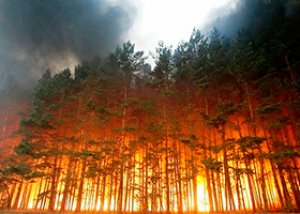
All iLive content is medically reviewed or fact checked to ensure as much factual accuracy as possible.
We have strict sourcing guidelines and only link to reputable media sites, academic research institutions and, whenever possible, medically peer reviewed studies. Note that the numbers in parentheses ([1], [2], etc.) are clickable links to these studies.
If you feel that any of our content is inaccurate, out-of-date, or otherwise questionable, please select it and press Ctrl + Enter.
The climate is "unraveling": where will it lead?
Last reviewed: 02.07.2025
 ">
">Scientists are worried: extreme climate events are happening more and more often, and the damage from such cataclysms as floods, hurricane winds and droughts is increasing. At the same time, climatologists warn: in the future, everything will only get worse.
The increase in the number and frequency of extreme climatic events is a phenomenon that experts call climate "unhinging." According to scientists, the frequency of weather cataclysms has increased by more than 45% over the past six years. Over the past year, climatologists have recorded almost 800 such events. At the same time, the financial damage from the vicissitudes of the weather amounted to no less than 129 billion dollars, which is neither more nor less than the state budget of a country like Finland.
The second important aspect is the negative impact on human health. Thus, climate change leads to the development of epidemics, to increased air pollution, to a decrease in the working capacity of the population.
“The impact of extreme climate on people is clearly visible and, unfortunately, is an irreversible process,” say the researchers, representatives of 24 scientific groups from various institutes, as well as from the World Bank and WHO.
The elderly, those with weak immune systems and a large number of chronic diseases suffer the most. Over the past sixteen years, agricultural activity in India and Brazil has decreased by more than 5%. This is due to the strong warming of the climate in these regions.
When describing the impact on human health, scientists note that climate changes have led to massive epidemics of Dengue fever. Every year, doctors record this type of fever in 100 million patients.
Hunger is considered as a separate aspect. The number of hungry people in Asian and African countries has increased by 24 million people in 26 years. "The lack of necessary food is also a consequence of climate change in the 21st century," the scientists point out in their report.
The positive aspect of this situation, experts believe, is that the mortality rate from weather events has not changed in recent years. This may mean that people are able to cope with natural phenomena to some extent.
The study's author, Nick Watts, said: "There is hope that the increase in average annual temperatures will also have some positive effects, such as reducing the risk of death from hypothermia in countries further north.
Immediately before the scientists' report, a report by the World Meteorological Organization was published. According to the report, last year the atmospheric CO2 content exceeded 403 million parts per million, which was half as much as the average figure for the past ten years. Scientists noted that in the past 800 thousand years this value was less than 280 million parts per million.
The full study report is published in The Lancet.
